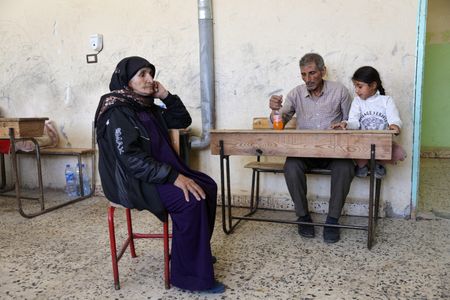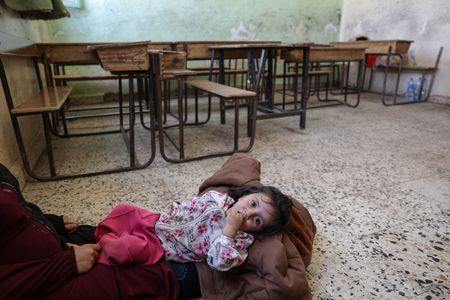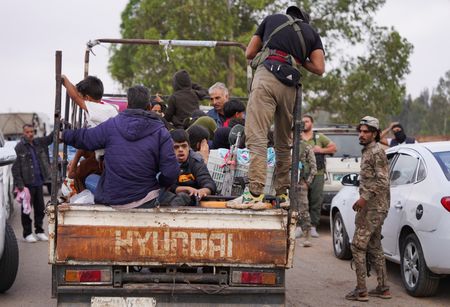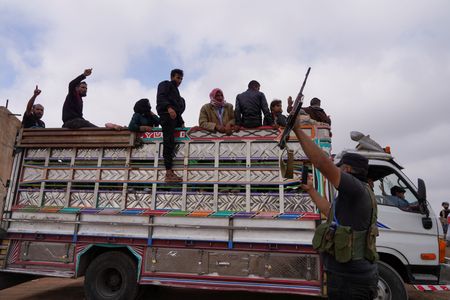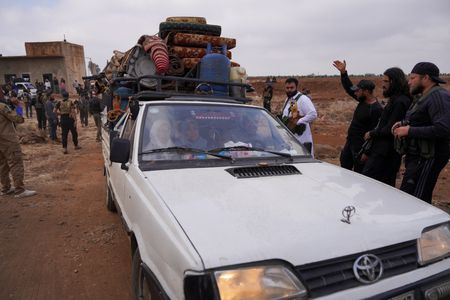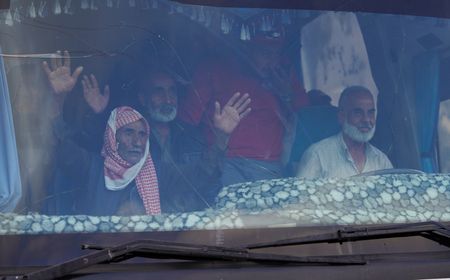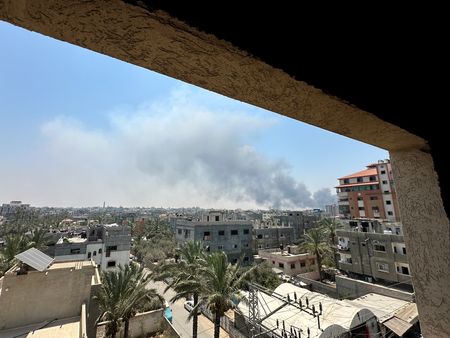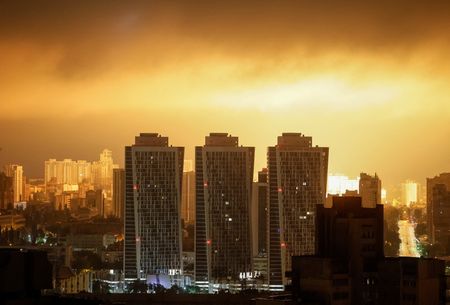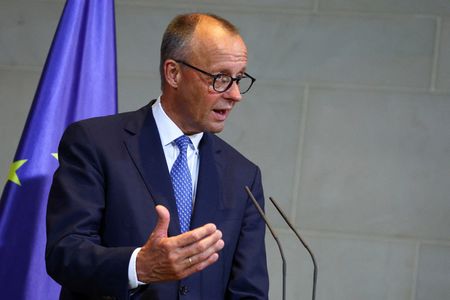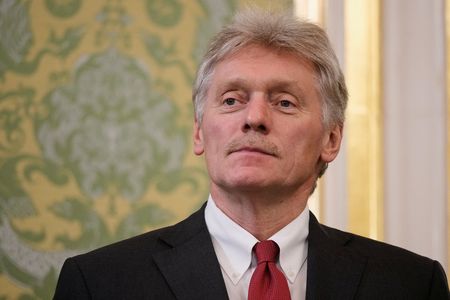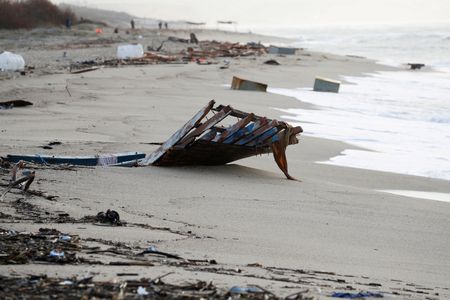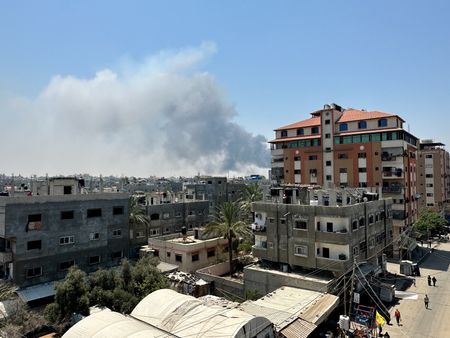DAMASCUS (Reuters) -Hundreds of Bedouin civilians were evacuated from Syria’s predominantly Druze city of Sweida on Monday as part of a U.S.-backed truce meant to end days of bloodshed in southern Syria, state media and witnesses said.
With hundreds reported killed, the violence in the southern province of Sweida has posed a major test for interim President Ahmed al-Sharaa, drawing Israeli airstrikes last week and deepening fissures in a country fractured by 14 years of war.
A ceasefire took hold on Sunday as interior ministry security forces deployed on Sweida’s outskirts. Interior Minister Anas Khattab said on Sunday the truce would allow for the release of hostages and detainees held by the sides.
The fighting began a week ago, pitting Druze fighters who distrust the Islamist-led government against Sunni Muslim Bedouin. Damascus sent troops to quell the fighting, but they were drawn into the violence and accused of widespread violations against Druze.
Sharaa has blamed the violence on “outlaw groups” and promised to protect the rights of Druze – a minority group whose faith is deemed heretical by some hardline Muslims. Calling the Druze a fundamental part of Syria’s national fabric, Sharaa has vowed to hold to account those who committed violations against them.
Details of last week’s violence are still emerging. Ali al-Huraym, a 56-year-old Bedouin man, said six members of his extended family had been killed by Druze fighters in an attack on the town of Shahba, 15 km (10 miles) north of Sweida, on Thursday.
Speaking to Reuters at a school sheltering displaced Bedouin in Daraa province, he said Druze elders had assured them they would be safe in Shahba, but the attacking Druze faction had ignored their instructions. He accused the Druze faction of trying to drive Sunni tribes from the area, without identifying it.
Salem al-Mahdi, 60, another Bedouin displaced from Shahba with his family, told Reuters he saw six bodies in one home there, and the town had been hit with weapons including mortars.
Speaking to Reuters by phone, Luna Albassit, a Druze activist in Shahba, said the situation after so much bloodshed remained tense despite the end to clashes.
“People were killed in the streets, in their homes, they were humiliated and it was in the name of the state,” she said, referring to attacks by government-aligned forces.
Reuters could not independently verify the accounts.
In Sweida, footage released by local news outlet Suwayda 24 on Sunday showed what appeared to be numerous body bags in the grounds outside the hospital.
The Syrian Network for Human Rights said at least 558 people had been killed in violence in Sweida province since July 13. The Syrian Observatory for Human Rights has reported more than 1,000 killed.
US ENVOY
On Monday morning, ambulances, trucks and buses ferried hundreds of Bedouin civilians including women, children and wounded people out of Sweida to nearby displacement camps, Reuters footage showed.
The initial batch included some 300 Bedouins, and a second group of about 550 civilians will be evacuated within the next 24 hours if the situation remains calm, said Shoaib Asfour, a member of the Syrian security forces overseeing the evacuation.
The next phase would see the evacuation of Bedouin fighters detained by Druze militias and the transfer of bodies of Bedouins killed in the fighting, Asfour said.
Syria’s state news agency said a total of 1,500 Bedouins would be evacuated from Sweida city.
Citing Ahmed al-Dalati, head of Syria’s internal security forces in Sweida, state media said those forces would also facilitate the return to Sweida of others displaced from it.
According to the United Nations, at least 93,000 people have been uprooted by the fighting.
The U.N. said on Sunday that humanitarian convoys with medical supplies had been waiting to enter Sweida for two days but were not granted access. It said only a convoy of the Syrian Arab Red Crescent had been allowed to enter.
Citing the goal of protecting the Druze and keeping southern Syria demilitarized, Israel attacked government forces last week in the south and struck the defence ministry in Damascus.
Washington, which has expressed support for Damascus since Sharaa met U.S. President Donald Trump in May, said it did not approve of Israel’s strikes.
U.S. envoy Tom Barrack said on Monday the Syrian government needed to be held accountable. “They also need to be given the responsibility that they’re there to do,” he said, speaking on a visit to Beirut.
(Reporting by Suleiman al-Khalidi in Syria, Maya Gebeily, Jana Choukeir and Laila Bassam in Beirut, Tuvan Gumrukcu and Ece Toksabay in Ankara; Writing by Maya Gebeily and Tom Perry, Editing by Mark Heinrich, William Maclean)

